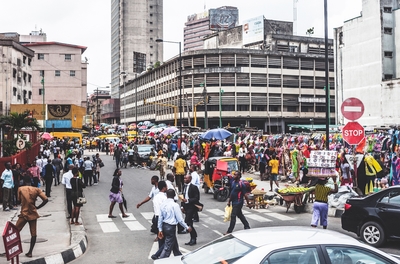
We’ve saved the best for last on this journey around the world looking at different international business cultures. The final trip we’re taking in 2016 is to the Sub-Saharan Africa region—from modern South African cities to tribal villages on the veldt. Sub-Saharan Africa encompasses the part of Africa that lies south of the Sahara Desert, which is the giant barrier between the north and south and is dissected by the Nile River.
There are many differences in culture, language, history, religion, economy, and landscape among the countries of Sub-Saharan Africa.
Business
Sub-Saharan Africa is a ripe place for business. It is one of the fastest developing regions in the world. Growth rates in many countries in this region exceed those of Asian countries. Infrastructure investment has been strong, and an increase in jobs means consumers are spending.
Nigeria, one of the most heavily populated nations in the region with 175 million people, has a lot of natural wealth because of its oil and mineral resources. Gross domestic product per capita in Nigeria is among the highest in Africa. In 2015, Harvard Business Review called Sub-Saharan Africa “a competitive marketplace.” You need to get your foot in the door if you want to build a long-term presence there. The workforce will soon be the world’s largest, and governments are investing hugely in education.
Language
The greatest number of languages in the world are spoken in Sub-Saharan Africa, though most educated Africans are fluent in either English or French. In Nigeria, English is used to teach in schools and is the language of government transactions. One big challenge these countries face is that their most well-educated citizens tend to leave and move to Europe or the United States. Even so, African universities are doubling and tripling their output of college-educated students.
Technology
Technology is enabling the poorest of Sub-Saharan African nations and villages to connect to the internet. Solar panels allow for electricity to be created several hours a day. Personal water pumps make it possible to collect sufficient water for daily use without having to walk for miles.
Relationship Building
Families are the most important structure in African society. Ubuntu, cooperation and interdependence, is the operating word for business success. As in most sections of the world, an enormous amount of time must be spent cultivating personal relationships. All kinds of professional services are needed, and if you can manage building relationships with these remarkable people, you can carve out a huge advantage for yourself. Traditional villages possess a lot of harmony. People tend to take care of each other regardless of whether they are related by blood. It’s core to African societies.
Each area is different, so it is a good idea to have a local person whom you trust with you during your visit. I have always felt safe wherever I have traveled in Africa, but I am also careful to follow the advice of locals.